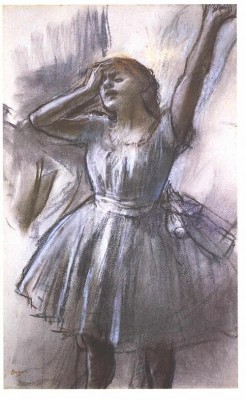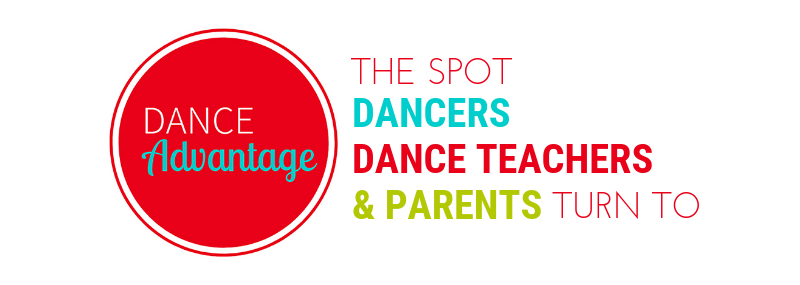Chantale Lussier-Ley is a mental performance consultant based in Canada who has worked extensively with dancers. I interviewed her to get some professional insight on how parents should respond when their child says, “I want to quit dance.”
And she had more great advice for parents in her guest post, How To Nurture Positive Rivalry in Competition and Dance at Home (There are more positive rivalry posts to come, by the way! Look for an installment especially for teachers and for students.)
This time, we asked her a few quick questions on Burnout, Obstacles, and Overcommitment.
Here’s what Chantale had to say:
DA: Burnout has been defined as:
“an exhaustive psychophysiological response exhibited as a result of frequent, sometimes extreme, and generally ineffective efforts to meet excessive training and competitive demands” (Weinberg & Gould, 1995).
Can you help us better understand burnout?

CLL: Burnout has received a great deal of attention in research and in life. The fact that we are seeing younger and younger people experiencing burnout is certainly cause for concern.
Burnout (to rephrase that quote) is when a person’s physical, psychological, emotional, spiritual resources do not match the demands placed upon them.
It is said that burnout can fall under four main areas of concern: physical, logistics, social-interpersonal, and psychological concerns.
Sometimes, as extreme fatigue begins to rise, it may be important to implement a short-term break. Other times, a person may only need a change in schedule or routine to recover (physically and psychologically). Regular attention to recovery is necessary to prevent the occurrence of burnout.
DA: We like to say the tough get going, but obstacles and disappointment are common forks in the road, they have led some away from dance into something ultimately better. Meanwhile others, with the right support, have overcome and gone on to greatness. Where’s the line between supporting a child through obstacles and encouraging them down a fruitless path?
CLL: Information is power. Having “realistic” conversations with dancers and parents may be vital. Yet, so is tapping into the meaning in the pursuit. If the meaning is special enough for the child, it may be an important path to experience no matter the outcomes.
Empower yourself, as dance educator, parent, and student of dance with information and choices. And then, as I see it, support, support, support. After all, it may not ultimately be our choice to decide which obstacles and which successes one should or shouldn’t experience.
DA: How can parents recognize and help their child deal with overcommitment?
CLL: We all sometimes bite off more than we can chew. So do children. Sometimes, we just have to count the days until the next day off (pajama day in my world)!
Generally speaking, I feel it’s about coming to the table with awareness and a willingness to re-negotiate. What is working? What is not?
There is an expression that states that most of us are one small adjustment away from making our whole life work. Maybe it just means dropping one class, or taking this class instead of that one, in order to ensure one full day of physical rest per week, or one less back and forth drive.
Once again, recovery is key. What does your child need when overcommitted? Is it about more sleep? More school work time? Or perhaps it’s about making sure that there’s more free, unscheduled time, or more social connections. When, where, and how we protect these pockets of recovery are vital to self-regulating the ebb and flow of Life’s commitments.
Parents, what are YOUR questions?
Be sure to share your experiences on the above topics or ask your questions in our comments. We do our best to cover and give you the answers to your greatest concerns.
Chantale Lussier-Ley, PhD (c) is a registered member of the CSPA. She has nearly ten years experience as a Mental Performance Consultant with athletes and artists. Notably, she has recently worked with the 2012 gold winning IIHF world champion U18 Canadian Women’s National Hockey Team and the highly competitive Ottawa Senators’ Women’s Hockey Junior (InterAA) team. She has also worked extensively with dancers, consulting for the Royal Winnipeg Ballet School’s Professional Division (2002-2004) and the Professional Contemporary Dance program at The School of Dance (2005-present). Herself a graduate of the Royal Winnipeg Ballet’s Professional Division Teachers’ Training Program, Chantale is a professional member of the Cecchetti Society of Canada with Associate Diploma teaching certification and Advance Cecchetti (ballet) with over 20 years of dance, teaching, and performing experience. Since 2009, Chantale has taken a seat on the National Committee of Physical and Health Education Canada’s Dance Professional Advisory Committee. Currently in her final year in the Faculty of Education at the University of Ottawa, her doctoral research was conducted at the 2008 Canada Dance Festival and was funded by the Social Sciences and Humanities Research Council. A part-time professor at the University of Ottawa’s Faculty of Arts, Chantale teaches a course on mental performance for the Arts to musicians and actors. Equally at ease working with grassroots, developmental, elite or professional contexts, Chantale enjoys bringing her own creativity to her work on the mental elements of Excellence in sport and the performing arts.
For more information, please visit www.elysianinsight.ca or e-mail Chantale:
Nichelle Suzanne is a writer specializing in dance and online content. She is also a dance instructor with over 20 years experience teaching in dance studios, community programs, and colleges. She began Dance Advantage in 2008, equipped with a passion for movement education and an intuitive sense that a blog could bring dancers together. As a Houston-based dance writer, Nichelle covers dance performance for Dance Source Houston, Arts+Culture Texas, and other publications. She is a leader in social media within the dance community and has presented on blogging for dance organizations, including Dance/USA. Nichelle provides web consulting and writing services for dancers, dance schools and studios, and those beyond the dance world. Read Nichelle’s posts.

